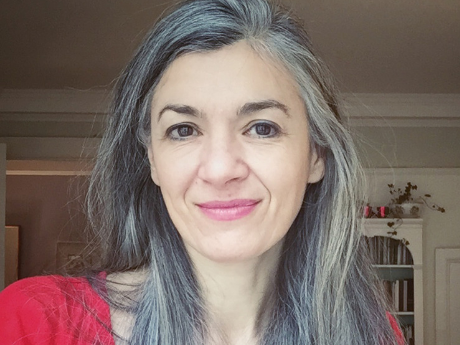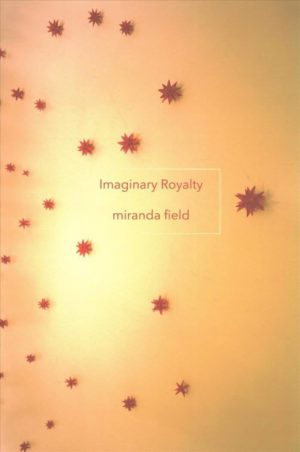In Their Own Words
Miranda Field on “Spare Room”

Spare Room
Fell asleep staring at an empty ant farm.
How we play with others, how we treat what we keep, if we bear
hunger in mind, if we answer when strays scratch at the door,
depends on the animals we kept— if we pulled wings off insects, if we tucked in mice
for the night, if we named, if we brushed, if we made four legs fit two-
sleeved dresses, if we offered plates for licking.
All the mute spirits of our creations and creatures, in what ways
have we sustained? Have we communicated across divides?
Woke up copying an ant farmer's awkward signature
over and over, all down the length of The Dangerous Book for Boys.
What we keep and what we let escape, the criteria change, what lives, what dies,
and how, and why, and what helpless things we carry, which
we'd be willing to mother forever. One couldn't need a room at a better time,
someone said, with one left vacant so lately.
Slept deeply, dreamed my sister, speechless,
lifted her sweater to show the place where all our lost creatures still
latch on. Are you eating, I asked her, is it sufficient?
Does it equal all the feeding?
From Imaginary Royalty (Four Way Books, 2017). All rights reserved. Reprinted with the permission of the author.
On "Spare Room"
Years before his bedroom became the "spare room," my nephew—firstborn of the newest generation in my family—must have spent some minutes or hours there practicing signing his name on the fly-leaves of his books. Years later, in the months following his suicide, I came across his childish hand in one of his old books, and it shook me. Each painstakingly formed signature in blue ink was our beautiful boy's life's ghostly trace. The poem recalls how as children we rehearsed our mysterious futures. When my sisters and I fed and cared for (and, not infrequently, neglected) all the many pets we kept as children, we were playing Mother, and, unintentionally, confronting loss. We played Funerals, too—with birds, mice, many other creatures. Many children do this. Adults say Better to have loved and lost—sensible in the abstract, but utterly beside the point to the grieving. In an autobiographical poem like this one, I don't want the voice pretending it possesses deep insight into great mysteries. No one knows what to do with death.



